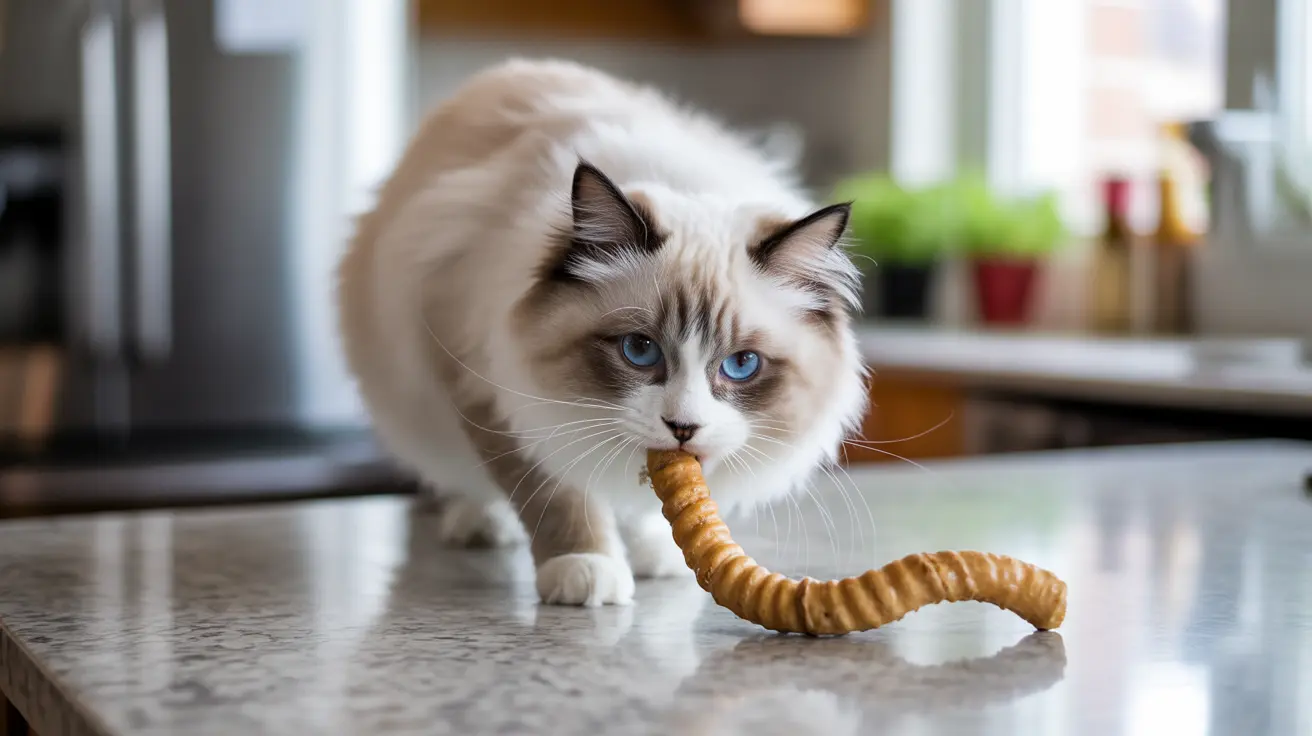Understanding Bully Sticks and Their Composition
Bully sticks are natural dog chews made from dried bull penis tissue. While they're marketed as all-natural, high-protein treats for dogs, their dense, fibrous texture and size make them potentially hazardous for cats. These treats are specifically designed for canine jaws and digestive systems, not feline anatomy.
Safety Concerns for Cats
Physical Hazards
The primary risks of bully sticks for cats include:
- Choking hazards due to their size and density
- Potential for esophageal obstruction
- Risk of dental damage or fractures
- Possibility of splintering and causing internal injuries
Digestive Considerations
Cats have different digestive capabilities than dogs. Their shorter digestive tract and specialized enzyme systems aren't designed to process dense, chewy proteins like bully sticks. This can lead to:
- Gastrointestinal upset
- Potential blockages
- Difficulty digesting the dense protein
Nutritional Value for Cats
While bully sticks are high in protein, they don't provide the specific nutritional requirements cats need. Cats require:
- Taurine and other essential amino acids
- Balanced vitamins and minerals
- Species-appropriate protein sources
What to Do If Your Cat Shows Interest in Bully Sticks
If your cat appears curious about bully sticks, it's important to:
- Keep them out of reach
- Never leave them unattended around cats
- Store them securely with other dog treats
- Provide cat-specific alternatives
Better Alternatives for Cats
Instead of bully sticks, consider these safer options:
- Commercial cat treats designed for feline dental health
- Small pieces of freeze-dried meat treats made for cats
- Specially formulated cat chews
- Interactive toys that satisfy the urge to chew and play
When to Contact Your Veterinarian
Seek immediate veterinary attention if your cat has consumed bully stick pieces and shows any of these symptoms:
- Difficulty breathing or swallowing
- Vomiting or retching
- Lethargy or loss of appetite
- Signs of abdominal pain
- Changes in bathroom habits
Frequently Asked Questions
Can cats safely chew or eat bully sticks, and what are the main risks involved?
No, cats cannot safely chew or eat bully sticks. The main risks include choking, dental damage, digestive blockages, and internal injuries from splintered pieces. These treats are specifically designed for dogs' stronger jaws and different digestive systems.
Are bully sticks nutritionally suitable for cats compared to cat-specific treats?
Bully sticks are not nutritionally suitable for cats. While high in protein, they lack essential nutrients cats need, such as taurine, and aren't formulated to meet feline dietary requirements. Cat-specific treats are always a better choice.
What signs should I watch for if my cat accidentally chews on a bully stick?
Watch for signs of choking, difficulty breathing, vomiting, lethargy, decreased appetite, or abdominal pain. If you notice any of these symptoms, contact your veterinarian immediately.
How should I introduce bully sticks to my cat, if at all, and what precautions should I take?
It's not recommended to introduce bully sticks to cats at all. Instead, focus on providing cat-specific treats and toys that are designed for feline safety and enjoyment.
What are better treat alternatives for cats instead of bully sticks to ensure safety and proper nutrition?
Better alternatives include cat-specific dental treats, freeze-dried meat treats made for cats, commercial cat chews, and interactive toys. These options are safer and more appropriate for feline anatomy and nutritional needs.
Conclusion
While bully sticks aren't toxic to cats, they pose significant safety risks and aren't appropriate treats for felines. Instead, focus on providing your cat with species-appropriate treats and toys that support their health and well-being. Always consult with your veterinarian about the best treat options for your specific cat's needs.






